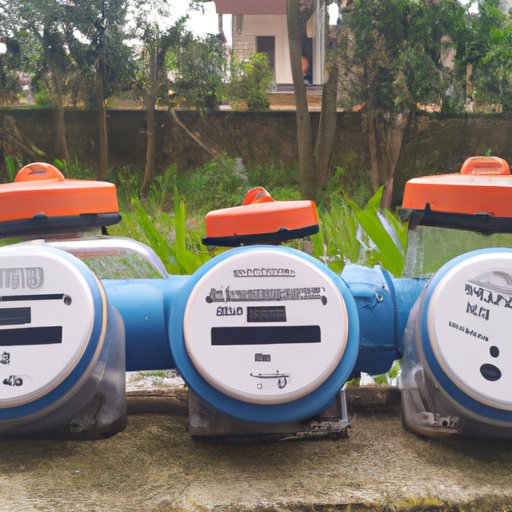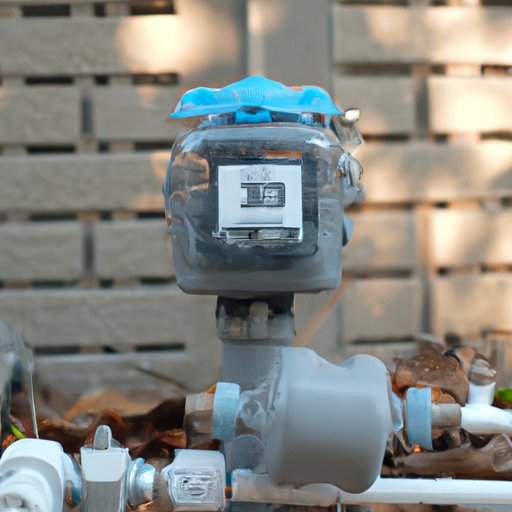Introduction
A water meter is a device that measures the amount of water that passes through it. It is typically installed on the main water line entering a home or business and is used to track water usage for billing purposes. The installation of a water meter can help homeowners and businesses save money by providing an accurate measurement of their water usage.
In this article, we will explore how a water meter works, the science behind water meter technology, and the benefits of installing a water meter in your home.
A Step-by-Step Guide to Understanding How Water Meters Work
Water meters are relatively simple devices that measure the amount of water that passes through them. They are typically installed on the main water line entering a home or business. The water meter operates by measuring the amount of water that flows through the meter over a period of time. The meter records the total amount of water used, which is then used to calculate the water bill.
The basic mechanics of a water meter are fairly straightforward. As water passes through the meter, a turbine wheel inside the meter rotates. This rotation is measured by a set of gears and is used to calculate the amount of water passing through the meter. The number of revolutions of the turbine wheel is recorded and used to calculate the water usage.
In addition to the turbine wheel, there are several other components and processes involved in water meter operation. The water meter also contains a register, which is a device that records the total amount of water used. The register is connected to the turbine wheel and measures the number of revolutions of the wheel. This information is then used to calculate the total amount of water used.
The water meter also contains a check valve, which prevents water from flowing back into the meter once it has passed through. This helps ensure that the meter is accurately measuring the amount of water used. Additionally, the meter may contain a pressure sensor, which is used to measure the pressure of the water passing through the meter.

Exploring the Science Behind Water Meter Technology
Water meter technology is based on several scientific principles. The most important of these is the principle of conservation of energy, which states that energy cannot be created or destroyed, only converted from one form to another. In the case of a water meter, the kinetic energy of the water is converted into mechanical energy, which is then used to calculate the amount of water used.
There are several different types of water meters available. The most common type is the mechanical meter, which uses a rotating turbine wheel to measure the amount of water used. There are also digital meters, which use electronic sensors to measure the amount of water used, as well as smart meters, which use wireless technology to transmit data about water usage to utility companies.
Analyzing the Benefits of Installing a Water Meter in Your Home
Installing a water meter in your home can provide numerous benefits. One of the most important benefits is cost savings. By accurately measuring the amount of water used, a water meter can help you reduce your water bills by ensuring that you are only paying for the water that you actually use.
In addition to cost savings, installing a water meter in your home can help improve the efficiency of your water use. By having an accurate measurement of your water usage, you can adjust your water usage habits to ensure that you are using water efficiently and not wasting any water.
Conclusion
A water meter is a device that measures the amount of water that passes through it. It is typically installed on the main water line entering a home or business and is used to track water usage for billing purposes. The installation of a water meter can help homeowners and businesses save money by providing an accurate measurement of their water usage. The basic mechanics of a water meter involve a turbine wheel, a register, a check valve, and a pressure sensor. Water meter technology is based on the principle of conservation of energy, and there are several different types of water meters available. Installing a water meter in your home can provide numerous benefits, including cost savings and improved efficiency for your home’s water use.
(Note: Is this article not meeting your expectations? Do you have knowledge or insights to share? Unlock new opportunities and expand your reach by joining our authors team. Click Registration to join us and share your expertise with our readers.)
